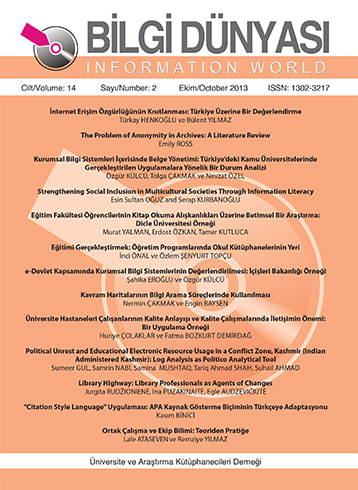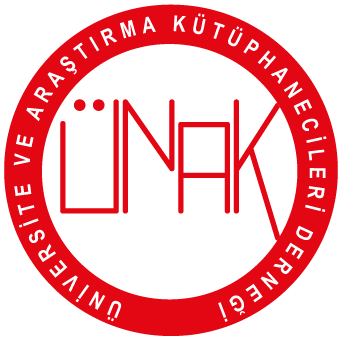Strengthening Social Inclusion in Multicultural Societies Through Information Literacy
DOI:
https://doi.org/10.15612/BD.2013.121Keywords:
Information literacy, Public libraries, Multicultural society, Multilingual society, Foreign residents, TurkeyAbstract
We live in an increasingly heterogeneous society. The rate of international migration has contributed to cultural diversity in many nations. Libraries of all types have started to address cultural and linguistic diversity while providing information sources and services. According to The IFLA Multicultural Library Manifesto (2008), each individual has the right to a full range of library and information services, and libraries should serve all members of the community without discrimination. Special attention should be paid to cultural and linguistic groups which are underserved such as minorities, refugees, immigrants, including those with temporary residence permits.
Public libraries are considered useful social instruments in the democratization of information. They are agents for social change and excellent tools for the integration of immigrants. They prepare immigrants for citizenship by introducing them to the values of their new nation, and frequently sustain them through the initial period of adaptation. They are spaces where patrons can readily access information, not only to increase their knowledge, but also to improve their abilities and skills in order to participate in society.
As the key for life-long learning and success not only in school and the work place but also in daily life, information literacy skills must be developed by immigrants, refugees and foreign residents in order for them to integrate into their adopted country. Knowing how to access, use and communicate information effectively will enable the social inclusion of newcomers. Therefore, developing special information literacy programs to equip such groups with information literacy skills should be among the priorities of public libraries.
In this study, the importance of information literacy skills in multicultural societies in terms of the social inclusion of immigrants will be underlined. Findings of a survey which has been conducted to ascertain information needs of foreign residents in Turkey and the level of fulfillment of their information needs will be presented. The findings of the research will also be used to make suggestions for developing information literacy programs which address the specific information needs of culturally and linguistically diverse communities.
Downloads
Published
How to Cite
Issue
Section

This work is licensed under a Creative Commons Attribution 4.0 International License.






